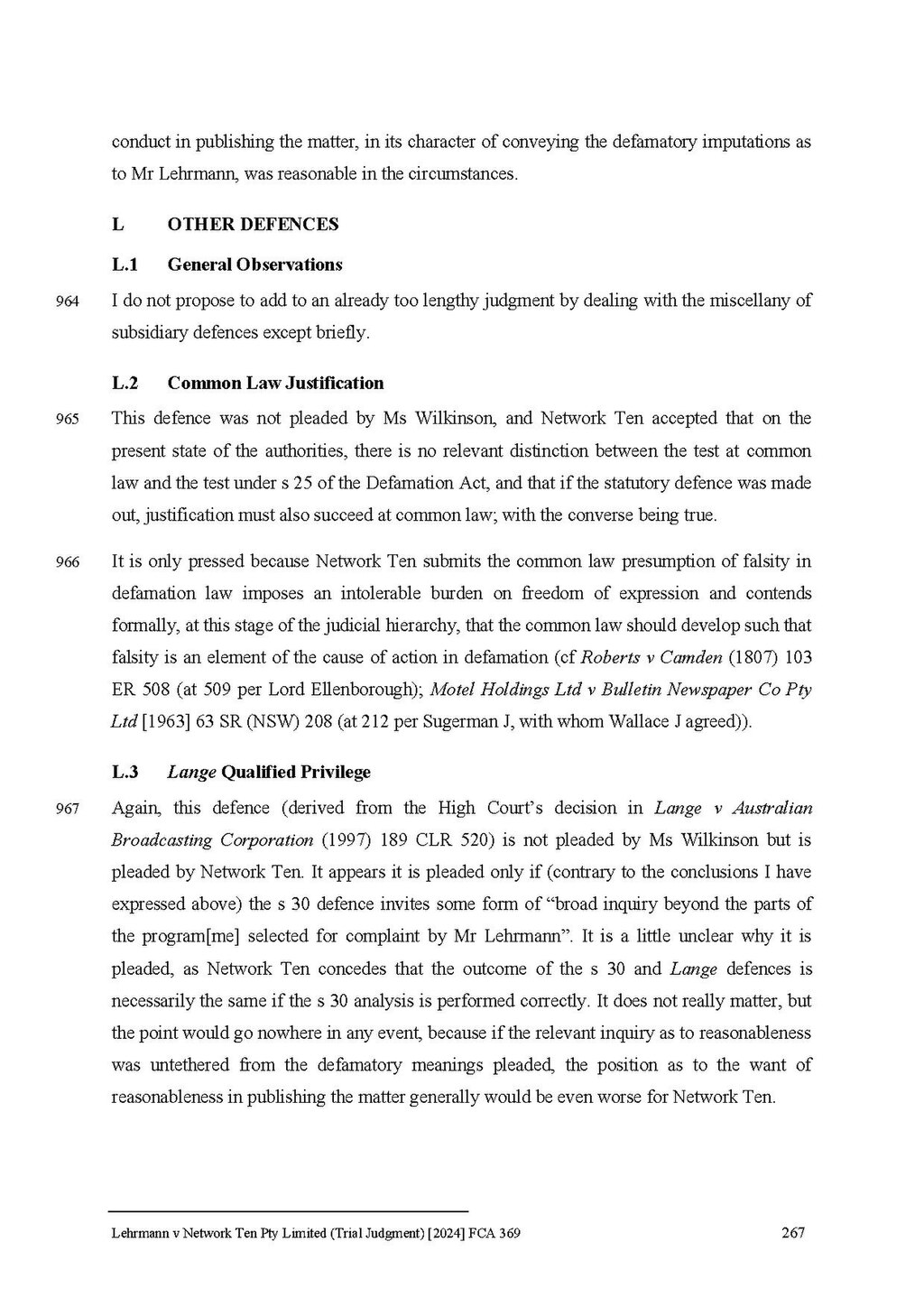conduct in publishing the matter, in its character of conveying the defamatory imputations as to Mr Lehrmann, was reasonable in the circumstances.
LOTHER DEFENCES
L.1General Observations
964 I do not propose to add to an already too lengthy judgment by dealing with the miscellany of subsidiary defences except briefly.
L.2Common Law Justification
965 This defence was not pleaded by Ms Wilkinson, and Network Ten accepted that on the present state of the authorities, there is no relevant distinction between the test at common law and the test under s 25 of the Defamation Act, and that if the statutory defence was made out, justification must also succeed at common law; with the converse being true.
966 It is only pressed because Network Ten submits the common law presumption of falsity in defamation law imposes an intolerable burden on freedom of expression and contends formally, at this stage of the judicial hierarchy, that the common law should develop such that falsity is an element of the cause of action in defamation (cf Roberts v Camden (1807) 103 ER 508 (at 509 per Lord Ellenborough); Motel Holdings Ltd v Bulletin Newspaper Co Pty Ltd [1963] 63 SR (NSW) 208 (at 212 per Sugerman J, with whom Wallace J agreed)).
L.3Lange Qualified Privilege
967 Again, this defence (derived from the High Court's decision in Lange v Australian Broadcasting Corporation (1997) 189 CLR 520) is not pleaded by Ms Wilkinson but is pleaded by Network Ten. It appears it is pleaded only if (contrary to the conclusions I have expressed above) the s 30 defence invites some form of "broad inquiry beyond the parts of the program[me] selected for complaint by Mr Lehrmann". It is a little unclear why it is pleaded, as Network Ten concedes that the outcome of the s 30 and Lange defences is necessarily the same if the s 30 analysis is performed correctly. It does not really matter, but the point would go nowhere in any event, because if the relevant inquiry as to reasonableness was untethered from the defamatory meanings pleaded, the position as to the want of reasonableness in publishing the matter generally would be even worse for Network Ten.
